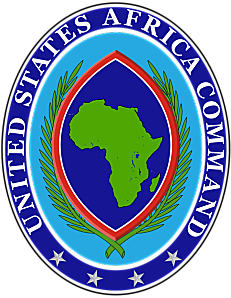ARLINGTON, Va. | U.S. Africa Command’s top military officer yesterday detailed existing and emerging threats from extremist organizations on the continent in a speech at the African Center for Strategic Studies here.
Army Gen. Carter F. Ham also explained the U.S. presence in Africa and Africom initiatives based on the new U.S. defense strategic guidance.
“When you read the [guidance], you will find that the word ‘Africa’ appears precisely once,” he said. “So some question that and say, ‘So does that mean that the United States military does not really think very seriously, or is not very committed, to African security matters?’ My response to that is, ‘No, our view is actually quite different.’”
Ham said while it is true the U.S. military now is focused on the Asia-Pacific region and the Middle East, the strategic guidance refers to “some very consistent and very relevant priorities for those of us who operate with our African partners.”
These include combatting extremist organizations, transnational threats and illicit trafficking; countering piracy, building partner capacity; developing nations’ capabilities to deal with humanitarian assistance and disaster relief missions; and contributing to regional security, Ham said.
“All of those tasks are outlined in this document, and all of those tasks are the tasks that United States Africom focuses on with you,” he added.
The general told the audience that U.S. efforts in Africa entail an “absolute imperative … to protect America, Americans and American interests,” just as in other parts of the world.
Specifically, Ham said, his command’s seeks to protect the United States and its interests from threats that may emerge from the continent.
“I’ll start in East Africa, where we see very clearly the threat of al-Qaida in East Africa, and its affiliated organization, al-Shabaab, which operates principally, but not exclusively, in Somalia,” he said. “We also know that because -- in Somalia especially -- al-Shabaab’s presence has denied the delivery of … humanitarian assistance to a population that has been under some significant duress for a long period of time,” Ham said.
U.S. military involvement principally is in training, equipping and funding the African Union Mission and Somalian forces from Uganda, Burundi, Djibouti, Sierra Leone and Kenya.
“Ethiopia … has been quite effective in its role, as well,” he noted. “And we think that’s an ideal role for the United States -- not a large, U.S. military presence. We think that would be counterproductive in Somalia, actually.”
Rather, he said, the United States wants to apply its resources in Africa to help countries willing to contribute to the effort with training, equipping and with some funding so that they can continue their operations.
Other extremist organizations in Africa, such as al-Qaida in the Lands of the Islamic Maghreb and Boko Haram, also pose a concern, Ham said, noting that officials are increasingly concerned with the former, which now has a safe haven in a large portion of Mali after a military coup there.
The group is operating “essentially unconstrained,” Ham said, and is implementing a harsh religious law system throughout much of northern Mali. It also has “very clearly” shown a desire and intent to attack Americans, he added.
“Just to the south of that, we see the increasingly violent organization, Boko Haram, operating in Nigeria,” he said. Boko Haram is not a new organization, he told the audience, and it’s not monolithic. “Everybody in Boko Haram doesn’t feel the same way,” Ham said. “It has many different factions.”
Each of the extremist organizations is “worrisome” in its own right, the general said, and there are indications they are seeking to coordinate and synchronize their efforts.
“In other words, [they seek] to establish a cooperative effort amongst the three most violent organizations, and I think that’s a real problem for us, and for Africa’s security, in general,” he said. Al-Qaida in the Lands of the Islamic Maghreb and Boko Haram may be sharing funds, training and explosive materials, he added.
Libya also is a concern as it comes out of its revolution and forms its new government, Ham said.
“There very truly are those who wish to undermine the formation of that government,” he said. “And again, we see some worrying indicators that al-Qaida and others are seeking to establish a presence in Libya.”
Part of Libya’s challenge, he said, is for the new government to now bring together the many militias which fought “very bravely and effectively” to overthrow Gadhafi.
Ham said the United States seeks to help by establishing a “normalized” military-to-military relationship with Libya.
“I’ve been to Tripoli a number of times,” he added. “We’ve had Libyan officials visit us in our headquarters in Germany, and we have started to map out what the U.S. assistance might be for Libya well into the future.”

No comments:
Post a Comment